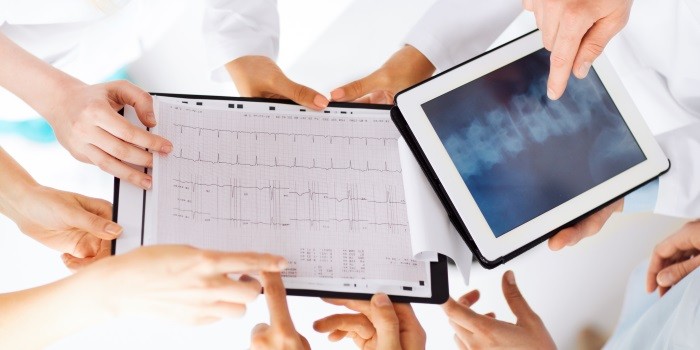
Big data is a broad term describing datasets previously too large for normal analysis, data of seemingly incompatible types, and the tools to analyze this data—and it’s changing the way healthcare organizations do business.
How? By helping healthcare businesses manage costs, assess risk and monitor the status of their patients in ways never before possible. One hospital’s data used to be hard enough to manage. Now, companies like Optum Labs are allowing for collaboration and data sharing for between 30 and 100 million patients. That’s a quantum leap in terms of patient diagnosis, cost and treatment.
Consumers can expect a better quality of care thanks in part to the edge in planning big data provides. This is because preventing disease is exponentially cheaper than curing it. We’re currently transitioning into a world where your favorite apps share data with your healthcare provider. This data from your apps can be compared to similar data from other users, making it easier to track your healthcare needs and anticipate potential problems before they become major issues. This data was previously unmanageable, but big data is making it more than just manageable, it’s making it useful.
Big data is making clinical trials less expensive and more accurate, and is allowing for a better selection when choosing participants in clinical trials. What’s more, researchers are able to share data more efficiently and accurately. This is beginning to lead to previously unthinkable breakthroughs in the treatment of illness. In fact, not long ago, researchers discovered that an antidepressant was useful in the treatment of lung cancer. Without big data, that breakthrough would never have happened.
Speaking of huge breakthroughs, big data will soon enable medical care to be tailored specifically to your genetic makeup. The information collected by companies that analyze DNA can be shared with healthcare providers, who can then use that data to help care for those who share it. Genetic-level medicine will help to prevent, predict and control epidemics, allowing for greater strength and lower costs when it comes to combatting, for example, the next Ebola outbreak. Flatiron Health is using big data to learn more about cancer through patient analysis, potentially increasing the ability to diagnose and treat a host of diseases.
Speaking of cost, big data collates far more cost information than ever before. This allows for a better assessment of costs in advance, decreasing healthcare costs through increased efficiency. The Pittsburgh Health Data Alliance is an excellent example of what the future holds: tailored healthcare packages based on your data. It’s estimated that five percent of patients account for half of all health care costs. Big data allows them to get the care they need at a lower cost. Even for the rest of us in the 95 percent, big data allows for optimized treatment that old-fashioned methods of data analysis couldn’t.
Readmissions are expected to drop due to big data’s analytic power. Closer to home, big data is already lowering adverse effects of health care. That doesn’t just mean lower costs. It means higher rates of survival.
Big data is a win all around for the world of healthcare. Like many of the bigger developments in the world of technology since the dawn of the 21st Century, we’ll probably all soon be wondering how we ever managed without it.